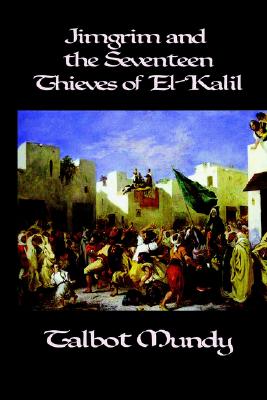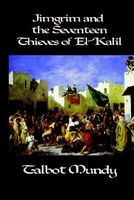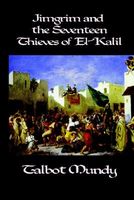- Welcome to FictionDB, Guest
- | My Account
- | Help

Jimgrim And The Seventeen Thieves Of El-Kalil — Talbot Mundy

-
Published:
-
Formats:
Print / eBook -
Series:
-
Main Genre:
Action Adventure -
Pages:
108 -
Purchase:
-
Share:
""Mundy's forte wasn't simply good research; Mundy was a born storyteller. Besides his predilection for creating tall tales around his early life as a scoundrel, Mundy could create larger than life heroes. Unlike creations like Robert E. Howard's ""Conan"" or Edgar Rice Burroughs' ""John Carter of Mars,"" Mundy's heroes, while courageous and plenty brawny when the situation required it, were capable of bluffing, playing one enemy versus another, and exploiting the character flaws of foes, and the fortes of his associates -- traits largely absent in other adventure heroes of the time. Also, like Mundy himself, his characters pondered the meaning of life, of destiny, a spiritual development that would mold their characters and set them apart from the typical pulp heroes.
""In 'The Seventeen Thieves of El-Kalil, ' Jimgrim is sent to Hebron to defuse a situation where the Moslem population, led by a family of thieves, is intent on slaughtering the Jewish population. It takes all of Jimgrim's savvy to play off the different factions until help can arrive from Jerusalem. If I had one warning about the stories for today's readers it is that while Mundy could hardly be accused of racism, his characters' views do reflect 1920s attitudes about the ethnic/religious groups of the region.""
--Georges T. Dodds, SF Site"


